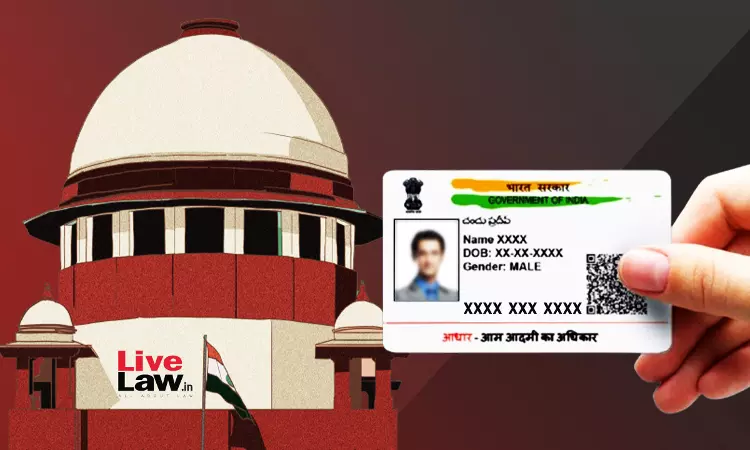Context:
Recently, the Supreme Court (SC) ruled that Aadhaar cards are not valid proof of age, as other official documents, such as the School Leaving Certificate, can adequately serve that purpose.
Background of the case
A Supreme Court bench reviewed a case regarding compensation for a motorcycle accident victim.
- In April 2015, the Motor Accident Claims Tribunal ordered the insurance company to pay Rs 19,35,400.
Under the Motor Vehicles Act, 1988 (MVA), compensation for death is based on various factors, including the deceased’s income, age, and number of dependants.
- The age determines the multiplier for estimating future financial contributions.
The Punjab & Haryana High Court later reduced the compensation to Rs 9,22,336, citing the victim’s age as 47 according to his Aadhaar card, leading to a multiplier of 13.
- The family appealed, claiming he was 45 based on his School Leaving Certificate, and argued for a multiplier of 14.
Supreme Court Ruling
The SC criticized the High Court for overstepping its authority, emphasizing that it should have only assessed whether the tribunal’s decision was flawed or illegitimate.
The ruling referenced Section 94 of the Juvenile Justice (Care and Protection of Children) Act, 2015,

- which allows the use of a “matriculation or equivalent certificate” as evidence for determining age.
- It supported this with High Court rulings that prioritize the School Leaving Certificate over the Aadhaar card for age verification.
The SC also cited a 2018 ruling that defined Aadhaar as “proof of identity” and noted a UIDAI circular stating that Aadhaar is “not proof of date of birth.”
Consequently, the Court upheld a multiplier of 14 based on the age listed on the School Leaving Certificate, awarding the family Rs 15 lakh in compensation.
About Aadhaar
- Aadhaar is a 12-digit unique identification number issued by the Unique Identification Authority of India (UIDAI) on behalf of the Government of India, serving as proof of identity and address.
- Any resident of India, regardless of age or gender, can enroll for Aadhaar if they meet UIDAI’s verification process. Enrollment is free and only needs to be done once.
- Each Aadhaar number is unique and valid for a lifetime. It aids residents in accessing various services, including banking and mobile connections.
- Aadhaar verification is now essential for various government programs and is also requested by private companies like Amazon Pay and Aditya Birla Housing Finance.
- As of January 2024, Aadhaar became mandatory for rural workers seeking employment under the Mahatma Gandhi National Rural Employment Guarantee Scheme.

